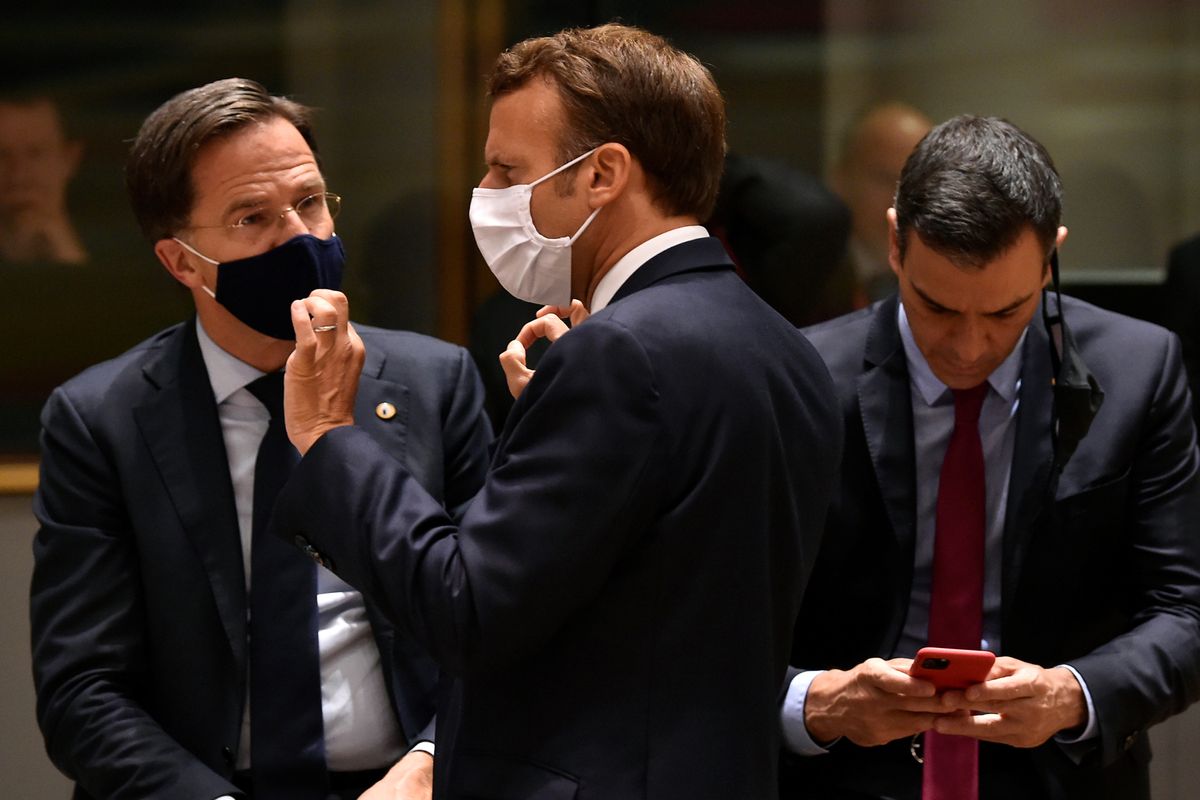Compromise on EU pandemic relief deal: In the wee hours of Tuesday, EU leaders reached consensus on a 750 billion euro fund to help EU member states recover from the crippling coronavirus-related economic crisis. Almost five days into what was supposed to be a three-day summit in Brussels, a group of "frugal" countries, led by the Netherlands, agreed to a combination of 360 billion euros in loans and 390 billion euros in non-repayable grants that will largely benefit Italy and Spain. These two countries were the hardest hit by the pandemic, but are reluctant to embrace labor market and pension reforms in exchange for EU rescue money. Disbursement of the funds will finally not be tied to upholding EU norms on democracy and the rule of law, as Hungary and Poland had pushed for. Although the "frugal" countries won generous rebates on their contributions to the EU budget, they failed to secure clear strings attached for big-spending recipients to get the money. Any deal is subject to parliamentary approval in all EU member states, so it will still be a long time until anyone sees any of the EU relief cash.
UAE goes to Red Planet: The United Arab Emirates successfully launched a Mars probe on Sunday, becoming the first Arab country to carry out a space mission. It's a major feat for the UAE, a rich but tiny Gulf nation which only started its space program six years ago, and has been able to pull off a launch to the Red Planet (almost entirely on its own) in about half the time it normally takes countries to do so. If the Emirati probe arrives safely, it will be joined on Mars by similar missions to be launched by the United States and China. With this move, the UAE — now a member of the elite club of countries with ambitious space programs — plans to achieve twin political goals: stoke nationalist sentiment by landing the Mars probe to coincide with the 50th anniversary of its independence in December 2021, and demonstrate its regional leadership on science and technology in the Arab world, where many Gulf states are exploring how to leverage such innovation to diversify their economies away from oil and gas.
Putin tries to tame the East: After more than 10,000 people again hit the streets in the Russian Far East region of Khabarovsk to protest the ousting of their popular governor, President Putin named a replacement in hopes of calming the protests. Will it work? Supporters of Sergei Furgal say that his recent arrest on murder charges was political payback from the Kremlin, whose own gubernatorial candidate Furgal beat handily in the last elections. Furgal is a member of the spectacularly misnamed Liberal Democratic Party of Russia, a far-right nationalist outfit that usually plays the role of lapdog opposition to the Kremlin. Lately, however, party leader Vladimir Zhirinovsky has been mouthing off more about the Kremlin. Critics say Furgal's replacement is just a more pliant member of the same party. With Putin's approval ratings touching all-time lows and Russia's economy battered by the pandemic, the Kremlin is keen to quash this bit of regional insubordination, lest it spread to other parts of Russia's vast hinterland that are frustrated with Moscow's political and economic dominance.


















